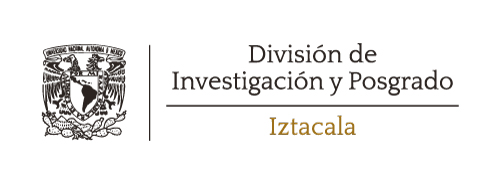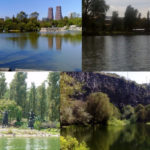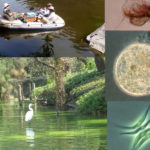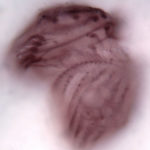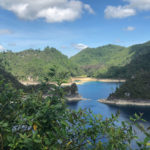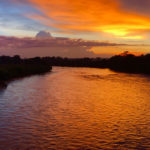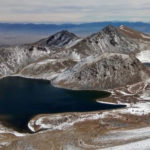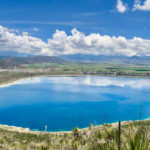
| Location within campus: | Interdisciplinary Research Unit for Health Sciences and Education (UIICSE), basement, 1st and 2nd floors. |
| Phone: | 55 5623 11 13 |
| Head of Laboratory: | Dr. María del Rosario Sánchez Rodríguez Full Professor C rosarios@unam.mx |
| Researchers affiliated to the laboratory: | Dr. Javier Alcocer Durand Full Professor C jalcocer@unam.mx, jalcocerdurand@gmail.com Mr. Mario Modesto Chávez Arteaga Associate Professor C artemar1506@gmail.com Dr. Jorge Ciros Pérez Full Professor B jorge.ciros@gmail.com, ciros@unam.mx Dr. Alfonso Lugo Vázquez Full Professor B lugov@unam.mx Dr. Miroslav Macek Full Professor C mmacek@live.co.uk Dr. Elizabeth Ortega Mayagoitia Full Professor A eortega@unam.mx Dr. María del Rosario Sánchez Rodríguez Full Professor C rosarios@unam.mx Dr. Gloria Vilaclara Fatjo Full Professor C inlakech59@gmail.com |
| Technicians affiliated to the laboratory: | Ms. Martha Leticia Gaytán Herrera Associate Academic Technician C martha.iztacala.unam@gmail.com Dr. Luis Alberto Oseguera Pérez Associate Academic Technician C loseguera@unam.mx, loseguera.72@gmail.com Ms. Laura Peralta Soriano Associate Academic Technician C sorial@unam.mx Professors from GILT with other appointments: Dr. Arturo Alcántara Rodríguez Teaching Assistant B jarturo.alcantara@gmail.com Dra. Estela Cuna Pérez Teaching Assistant B ecuna@unam.mx Dr. Cristian Alberto Espinosa Rodríguez Teaching Assistant B biocristian08@gmail.com Dr. Rocío Fernández Teaching Assistant B biol.fernandez@gmail.com Mr. Josué Morlan Mejía Teaching Assistant B awanteatlas@hotmail.com |
| Research lines per researcher: | The GILT is organized into four major laboratories: A. Macek, Vilaclara, Gaytán, Cuna, and Chávez. Aquatic Microbial Ecology with an emphasis on phytoplankton and protozooplankton, especially ciliates, and their role in the biogeochemical cycles of lakes and reservoirs. B. Alcocer, Oseguera, and Fernández. Limnology of tropical water bodies: aquatic ecology and population dynamics, long-term ecological research, high-altitude lakes, and global change. C. Lugo, Sánchez, Peralta, Morlán, and Espinosa. Limnology of urban lakes: management, conservation, eutrophication control, and aquatic environment restoration. D. Ortega, Ciros, and Alcántara. Evolutionary biology of lacustrine plankton. (https://sites.google.com/iztacala.unam.mx/bioevoplank/) |

Lines of Research:
Microbial ecology of lakes and reservoirs, focusing on the role of microorganisms in biogeochemical processes in the lake, particularly in the transition zone and anoxic hypolimnion. Community interactions. Taxonomy of eukaryotes and prokaryotes. Analysis of stratification and annual development of microorganisms, including changes in hydrological patterns and local/global climate change.
Under the research line of Tropical Limnology, both field and experimental investigations are conducted related to the physical, chemical, geological, and biological/ecological characteristics of epicontinental water bodies, including lentic (lakes, reservoirs) and lotic (rivers, streams) systems. Holistic processes such as ecosystem metabolism, carbon flux, long-term ecological research, global change, and climate change are addressed.
Urban lakes are artificial in origin and are often located within parks and wooded areas. Many of them are filled or receive treated or raw wastewater, which has various, mostly detrimental, effects on the water bodies. One of the most significant effects is eutrophication. The study focuses on the most significant environmental and biological effects of this issue, as well as biological methods that could help address it, such as biomanipulation using zooplankton, macrophytes, or fish management. The rehabilitation of these highly disturbed water bodies is of great importance for humans and other organisms inhabiting the increasingly urbanized areas worldwide.
Study of ecological and evolutionary factors that determine zooplankton diversity (rotifers, cladocerans, copepods) in lacustrine environments, integrating field data, laboratory experiments, and genomics.

Macek M, Sánchez X., Picazo A, Peštová D, Bautista, F., Montiel A., Alcocer J, Merino, M. & Camacho, A. (2020). Spirostomum teres: A long term study of an anoxic-hypolimnion population feeding upon photosynthesizing microorganisms. Acta Protozoologica, Aceptado.
Alcocer, J., Roberson, J., Oseguera, L.& Lewis, M. Jr. (2020). Rhythmic episodes of heating and cooling control thermal stratification of two tropical high mountain lakes. Aquatic Sciences. Aceptado.
Lugo A., Sánchez, M., Morlan, J., Peralta, L., Arellanes, E.& Oliva,G. (2017).Ciliates and trophic state: A study in five adjacent urban ponds in Mexico City. Journal of Environmental Biology, 38, 1161–1169.
Barrera, O., Ciros, J., Ortega, E., Alcantara,A.& Piedra, E. (2015). From Local Adaptation to Ecological Speciation in Copepod Populations from Neighboring Lakes. PLoS ONE 10(4): e0125524. https://doi.org/10.1371/journal.pone.0125524

| Entry profile of potential thesis students: | Interview with the interested student and consideration of the specific aspects of each GILT laboratory: Willingness for fieldwork and experimentation. Proficiency in microscope operation, spreadsheet software, and word processors. Interest in evolutionary biology and aquatic environments, the use of molecular biology techniques, and bioinformatics. Opportunities for completing LIC VII and VIII (for Biology program), social service, and thesis. |
| Service Social Data: | Vilaclara, F. G. and Macek, M. Key: 2020-12/63-870. “Research and Education on Present and Past Continental Bodies of Water in Mexico.” Understanding limnological procedures to create reports on epicontinental bodies of water. Lugo V.A. and Sánchez R. Ma. del R. Key: 2020-12/63-138. “Research and Education to Improve the Conditions of Urban Lakes.” Conducting limnological studies of urban lakes in Mexico City to generate basic knowledge. |
